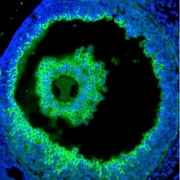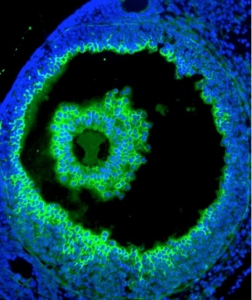AMSBIO offers advanced tools for glycobiology research
Drawing upon over 30-years’ experience of serving the glycobiology research community, AMSBIO has established a comprehensive portfolio of high-quality reagents including unique ranges of antibodies, lectins, enzymes, assay kits and standards, backed by in-depth technical support.
Glycobiology (the study of the structure, biosynthesis, and biology of carbohydrates) is a complex and dynamic area of research that combines enzymology, molecular and cellular biology, organic chemistry and materials science. Widely acknowledged as critical for both cellular biology and studies of carbohydrate-based drugs and therapeutics, glycobiology is a rapidly expanding field of research that is attracting a lot of attention.
Dr William Hadlington-Booth, Glycobiology product manager commented: “To maintain our global reputation as the premier supplier for the glycobiology research community, we’re constantly introducing new leading-edge products as well as investing in inventory to help us supply researchers with key reagents when they need them.”
Working with leading research groups – AMSBIO has established an unmatched range of monoclonal antibodies and binding proteins for proteoglycan, glycosaminoglycan (GAG) and ganglioside research including Heparan Sulfate, Chondroitin Sulfate, Keratan Sulfate and Hyaluronic Acid. AMSBIO’s antibodies provide high levels of specificity and affinity to target antigens; and most glycobiology antibodies work across many model species.
AMSBIO also offers a comprehensive range of specialist enzymes for glycobiology research and other applications. The company’s glycosaminoglycan (GAG) degrading enzymes include chondroitinase, heparinase and hyaluronidase enzymes.
The enzymes heparanase and hyaluronidase both play essential roles degrading carbohydrates in the extracellular matrix; and chondroitinase ABC has been associated with promoting neural repair and plasticity. AMSBIO offers kits for measuring activity of these enzymes in cell culture supernatants, plasma and other biological fluids, and tissue samples. These kits have been widely used by leading research groups for studies on anti-inflammatory responses, kidney disease, and cancer as they solve the standardization and performance issues associated with traditional measurement techniques for these types of enzymes.
- For more information, visit: amsbio.com/research-areas/glycobiology




